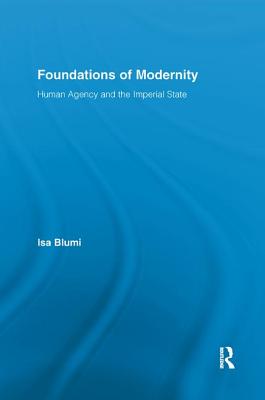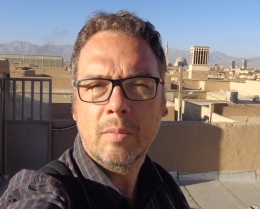

 Routledge
Routledge
Foundations of Modernity: Human Agency and the Imperial State


Key Metrics
- Isa Blumi
- Routledge
- Paperback
- 9781138306974
- 9.02 X 5.98 X 0.6 inches
- 0.85 pounds
- History > Modern - 19th Century
- English
 Secure Transaction
Secure TransactionBook Description
Investigating how a number of modern empires transform over the long 19th century (1789-1914) as a consequence of their struggle for ascendancy in the Eastern Mediterranean and Middle East, Foundations of Modernity: Human Agency and the Imperial State moves the study of the modern empire towards a comparative, trans-regional analysis of events along the Ottoman frontiers: Western Balkans, the Persian Gulf and Yemen. This inter-disciplinary approach of studying events at different ends of the Ottoman Empire challenges previous emphasis on Europe as the only source of change and highlights the progression of modern imperial states.
The book introduces an entirely new analytical approach to the study of modern state power and the social consequences to the interaction between long-ignored historical agents like pirates, smugglers, refugees, and the rural poor. In this respect, the roots of the most fundamental institutions and bureaucratic practices associated with the modern state prove to be the by-products of certain kinds of productive exchange long categorized in negative terms in post-colonial and mainstream scholarship. Such a challenge to conventional methods of historical and social scientific analysis is reinforced by the novel use of the work of Louis Althusser, Talal Asad, William Connolly and Frederick Cooper, whose challenges to scholarly conventions will prove helpful in changing how we understand the origins of our modern world and thus talk about Modernity. This book offers a methodological and historiographic intervention meant to challenge conventional studies of the modern era.
Author Bio
Isa Blumi is Docent/Associate Professor of Turkish and Middle Eastern Studies at Stockholm University Institute for Turkish Studies within the Department of Asian, Middle Eastern and Turkish Studies. He holds a PhD in History and Middle Eastern/Islamic Studies from New York University and a Master of Political Science and Historical Studies from The New School for Social Research, New York.
Dr. Isa Blumi joined Stockholm University in late 2015 after spending the previous 10 years teaching and researching in universities located in Germany, Belgium, Turkey, the USA, United Arab Emirates, Switzerland, and Albania/Kosovo. While at Stockholm University, he has mentored several graduate students, with two successfully defending their PhDs at the Universities of Geneva and Antwerp while four MA students in Middle Eastern Studies have since moved into PhD programs in Social Anthropology at Stockholm University, Arab History at the American University of Beirut and the University of Georgia-Athens, and Anthropology and Sociology at the Graduate Institute in Geneva.
Research Interests
Isa Blumi researches societies in the throes of social, economic, and political transformation. His latest work covers the late Ottoman period and successor regimes, arguing that these events are part of process that interlinks the Balkans, the Middle East, and the larger Islamic world. In this respect, it is key to explore in a comparative, integrated manner how post-Ottoman Turkey fits into what is a global story of transition.
As he expands his work to include more of the 20th century, Blumi explores processes of change induced by Muslim refugees who ended up settling throughout the world. Current research projects include understanding how Muslims of the former Ottoman Empire navigated the processes by which the Caliphate is ultimately eliminated under European imperial pressure; exploring how subsequent generations of refugees assimilated into their new host environments in the Americas, especially the industrial cities of Detroit, Mexico City, Buenos Aires, and Boston; understanding how Muslims throughout the world contributed to the Cold War with special focus on the interactions between the Lusophone World (in the context of the anti-colonial wars in Mozambique, Angola, Guinea-Bissau, Timor, and Cabo Verde), and communist parties in Portugal, Brazil, Turkey, Syria, Yemen, Albania, and Yugoslavia; and finally how unsettled peoples in the Horn of Africa, Arabia, and the Balkans shaped the policies of managing nature along borders separating competing imperial polities throughout the 19th and 20th centuries.
Exploring these refugees' stories through this global perspective helps question how we understand identity and social organization, themes Blumi will focus on in the courses he will teach. Beyond his historical research, Blumi also regularly writes, and lectures on contemporary Balkan and Middle Eastern politics (especially Kosovo, Turkey and Yemen) and political Islam.
Source: Stockholm University
Videos




Community reviews
Write a ReviewNo Community reviews